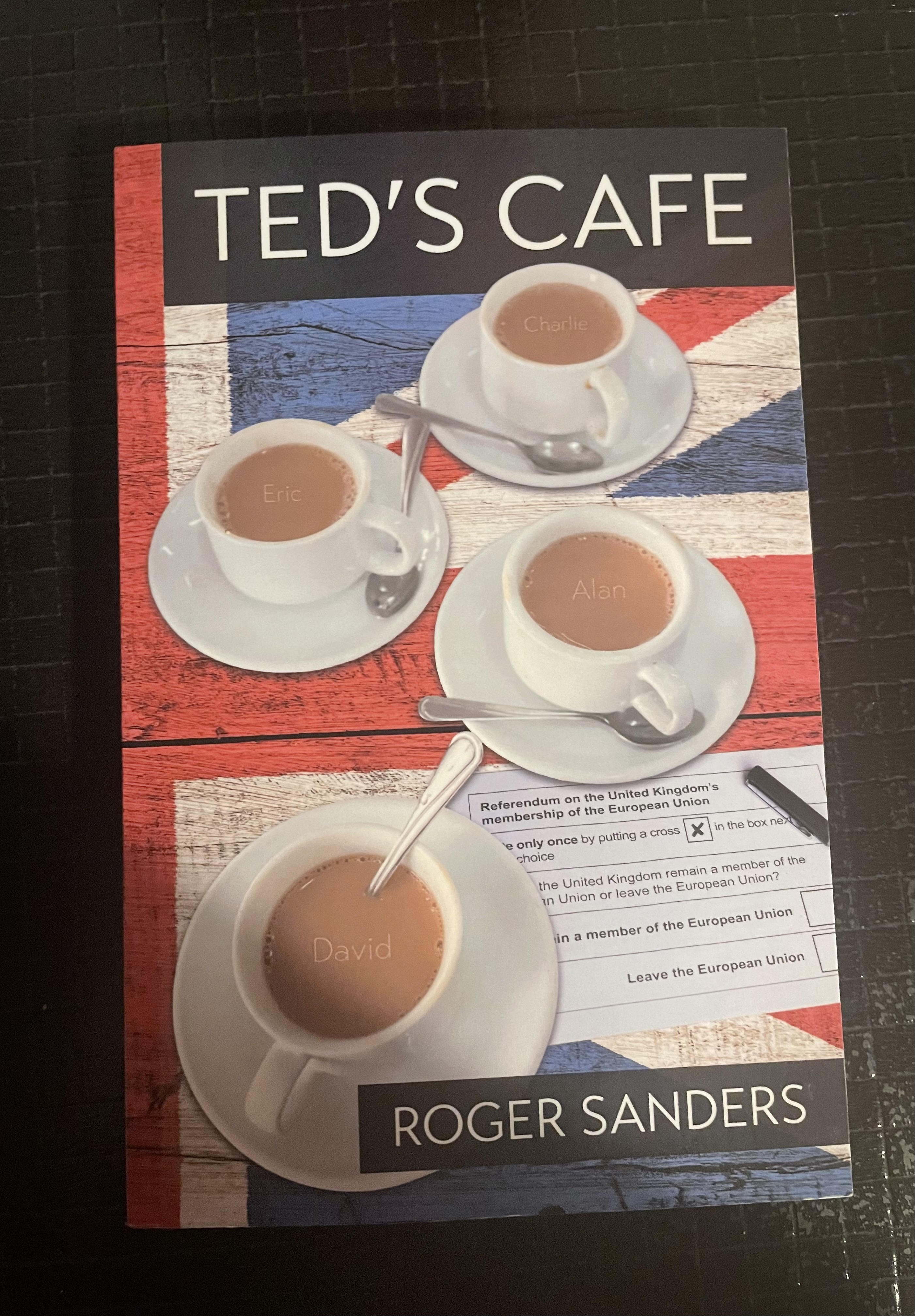 As Britain embarks on yet another period of political change, Roger Sanders’ timely Ted’s Cafe debut seems ripe for rousing book group discussions around the current state of Britain and Brexit — yep, that old chestnut that just won’t go away! The novel is set after the EU referendum, with the very real divisions in British society mirrored by the story world and its cast of characters.
As Britain embarks on yet another period of political change, Roger Sanders’ timely Ted’s Cafe debut seems ripe for rousing book group discussions around the current state of Britain and Brexit — yep, that old chestnut that just won’t go away! The novel is set after the EU referendum, with the very real divisions in British society mirrored by the story world and its cast of characters.
Given that this highly readable novel also explores male friendship, extra-marital affairs, finding unexpected love, anti-immigrant bigotry, and life after retirement, Ted’s Café serves plenty of meaty food for thought, and makes a fine addition to our series of book club discussion questions.
Hungry for more reading group material? After tucking into the questions below, browse scores of novels that are sure to spark lively debate at your book groups.
1. “Brexit. Bloody Brexit! A thing of stupidity built in an ideological folly of nationalism.”
How did the author’s representation of Britain after the Brexit referendum chime with your experience of it? Did Brexit divide your friends?
2. What did you think of the author’s portrayal of Britain’s political changes in the aftermath of the Brexit referendum?
3. Though scenes in Ted’s Café bookend the novel, and are peppered throughout, a lot of action takes place in The Artisan Coffee House. Explain the significance of this.
4. How did you feel when David trawled Dawn’s Facebook photos and became infatuated with her? Were you surprised when it transpired the feeling was mutual?
5. Did you warm to David as a character? Did he change through the course of the novel?
6. Which character did you respond to most?
7. Given Charlie’s political leanings and being elected as local councillor for Farage’s Brexit Party, were you surprised the men remained friends?
8. Discuss the representation of male friendship. Did the group dynamic feel authentic? How did you respond to the representation of retirement? Can you think of other novels that explore male friendship bonds, retirement, and finding new love in later life?
9. Did you feel sympathy for Gillian? Do you think she had all the affairs David believes she did? Why might the author have chosen to leave this largely undiscussed and unresolved between them?
10. “Things have changed in this country. We no longer feel… welcome.”
Do you agree Brexit changed Britain and made it less welcoming for non-nationals? Why might the author have used ellipses here?
11. What did you think of the ending? What “BIG news” do you think Dawn might have? Why might the author have ended the novel with Britain on the brink of COVID, pre-lockdown?



Comments (0)
Leave A Reply
You must be logged in to post a comment.